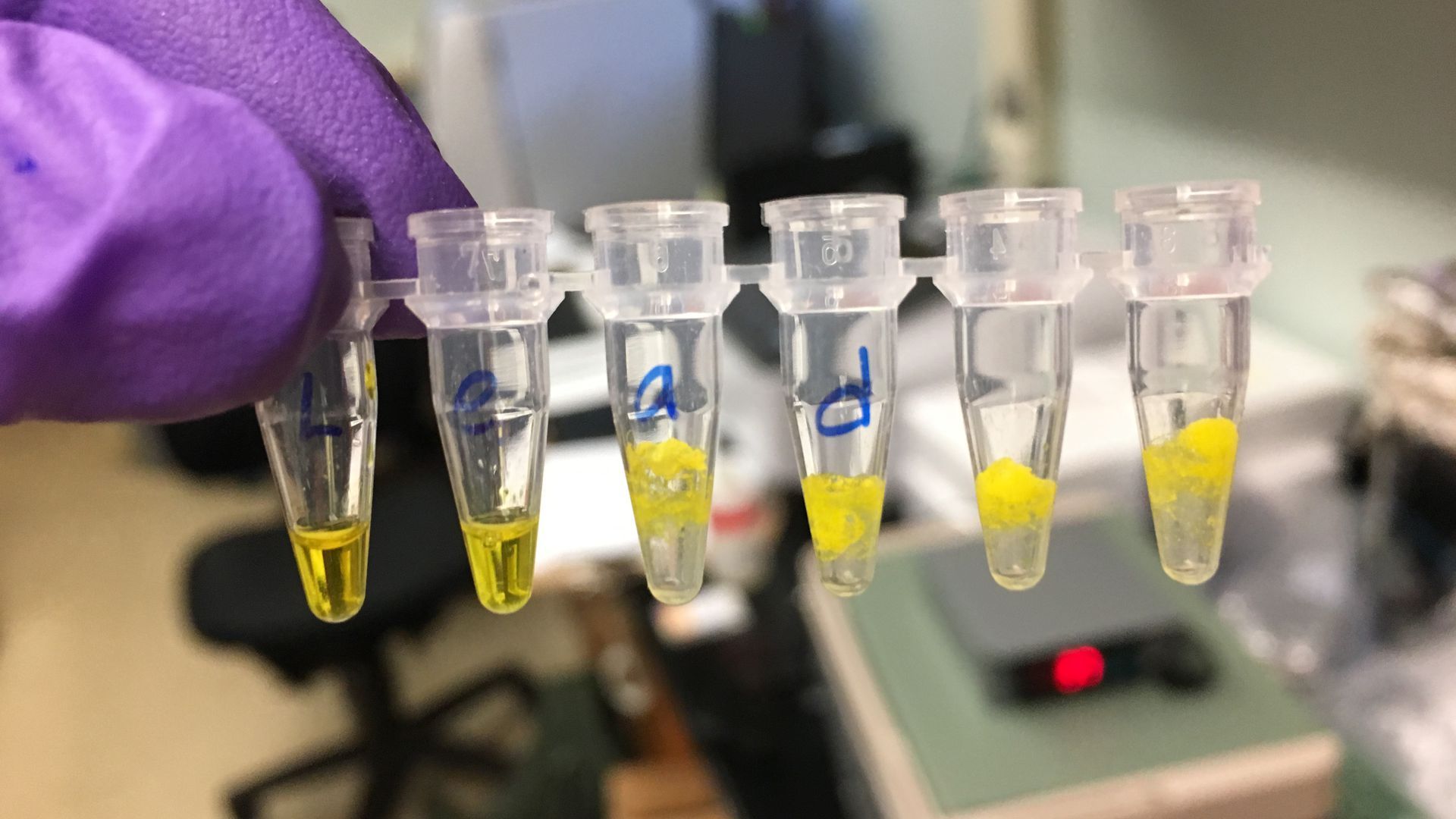Scientists develop one-drop test for water contamination
Add Axios as your preferred source to
see more of our stories on Google.

Northwestern's ROSALIND water testing platform. Photo courtesy of Northwestern University
A new platform uses synthetic biology to quickly identify contaminants in a single drop of water.
Why it matters: Water pollution is a major health risk, especially for poor and minority communities. Technology that can cheaply screen water supplies for contaminants like lead could help anyone easily determine if their water is safe.
How it works: Bacteria in water are capable of sensing potentially toxic contaminants using molecular "taste buds." The new technology platform, detailed in a study authored by scientists at Northwestern University, uses synthetic biology techniques to remove the taste buds and rewire them to produce a visual signal.
- The reprogrammed taste buds are freeze-dried — "like you're making astronaut ice cream" says Northwestern's Julius Lucks, lead author of the study — and placed in test tubes.
- Adding water to the test tube and flicking it causes the buds to glow in the presence of a contaminant, similar to how an at-home pregnancy test changes color based on its result.
- Right now the platform can detect 17 contaminants, including lead and copper, though Lucks is confident scientists will be able to engineer new bacteria capable of detecting a wider range of contaminants, including human-made ones.
The big picture: The presence of lead and other contaminants in water remains a major problem, especially for the poor. A study published on Monday found children in homes relying on private well water were 25% more likely to have elevated blood levels than children who use community water.
- Lucks and his colleagues did some initial testing of the platform in Paradise, the California town destroyed by wildfires in 2018. They found traces of toxic metals in the town's water that had resulted from cars melting in the intense heat.
- "With water quality crises like Paradise and Flint, we knew this test could have a major impact if it worked," says Lucks.
